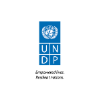
UNDP
Background
Zambia has received funding from the Green Climate Fund (GCF) for the project Strengthening climate resilience of agricultural livelihoods in Agro-Ecological Regions I and II in Zambia. This project aims to increase the resilience of smallholder farmers in Agro-Ecological Regions I and II in Zambia in view of climate change and variability. The project will achieve this aim by taking a value chain approach, addressing risks posed across key stages of the value chain – planning, inputs, production and post-production. The very high co-finance ensures that this project will shift public financing on agriculture towards climate resilient agriculture through strong partnership with GCF and UNDP. GCF funds will only finance the activities that have a clear climate change additionality like climate information and early warning systems, access to water for smallholder farmers and linkages with rural agricultural markets. The project will make targeted interventions to capitalize on opportunities to strengthen and promote viable climate-resilient value chains relating to smallholder agriculture in the target regions, specifically targeting value chains that are gender sensitive and provide viable economic opportunities for women. This includes three interrelated outputs: 1) strengthening capacity of farmers to plan for climate risk; 2) strengthening resilient agricultural production and diversification practices (for both food security and income generation); and 3) strengthening farmers’ access to markets and commercialization of introduced resilient agricultural commodities.
It is with this background that a qualified and self-motivated Engineer is being sought to fill the position of Project Engineer.
The Project Engineer will report to the Project Manager (PMU) and will be responsible for the overall management of all irrigation and processing works financed under the project. His/her tasks will be divided in to the core areas defined under duties and responsibilities.
Provides effective support throughout all stages of irrigation and processing infrastructure tendering processes:
- Provide technical assistance in establishment of common grounds for minimum standards requirements for the implementation of specific construction tasks as required by the specific infrastructure;
- Guide in the development of technical project and tender documentation (ToR, tender dossier, tender evaluation, etc.) for the implementation of specific construction tasks as required by the specific infrastructure and specified by the Project;
- Ensure that necessary supporting documentation is in place prior to issuance of tender by procurement unit;
- Participate in evaluation of bids and selection of best bidder to the tender for (re)construction works and assessment of the bidder’s competencies and experience against minimum qualification requirements as per the Request for Proposal/Invitation to Bid requirements;
- Analyse measures, quantities and description of each item in the offers against the advertised Bill of Quantities (BoQ);
- Analyse and review the offered unit rates against the cost estimate in correlation with BoQs, provided by contractors, and to assess whether they are realistic;
- Provide written report about the compliance of the evaluation process with UNDP project procurement procedures.
Conducts field visits and prepares assessment of construction interventions:
- Field visits to several identified potential infrastructure locations requiring specific technical assistance and, based on performed assessment, recommend best solution for project implementation;
- Preparation of Terms of References (ToR) and in certain instances prepare detailed design for reconstruction/ rehabilitation of structures where needed;
- Contribute towards the analysis of general physical conditions of proposed sites in the 16 project districts, in terms of water resources;
- Work with the committees for confirmation of land to be irrigated, based on the soil properties and land tenure characteristics that would sustain traditional and possibly new crops identified in the proposal.
Reviews and assesses technical design documents for construction interventions:
- Review of technical documentation (survey reports, Bill of Quantities with estimation of costs, technical description, design and specific drawings, participate in the evaluation of bids process) for specific infrastructure;
- Review of technical drawings, specifications and Bill of Quantities;
- Review environmental/social due diligence documents for construction interventions to ensure design recommendations are incorporated accordingly;
- Design the water extensions schemes starting from the source to the fields;
- Prepare the specifications of equipment required and supervise the equipment acquisition and the subcontract for construction of these extensions, with in-kind support by the communities;
- Design and conduct training on water use and agronomic practices to the community-based organizations and carry out the diffusion of small-scale irrigation techniques through WUAs, target groups’ organizations for the development of irrigation schemes;
- Assist in the preparation of TOR for subcontracts for expansion of systems, as well as monitoring the execution of these works.
Monitors and supervises construction works:
- Perform monitoring field/on-site visits, upon provision of construction activities for the sub projects during the specific assignment;
- Ensure that technical documentation on the construction site is maintained in accordance with relevant national laws and standards and contract for works;
- Sign off the final handover documentation upon completion of all construction works;
- Contribute to the technical strengthening of existing water committees, and work with the Committees on designing a realistic and appropriate fee structure and collection mechanisms to ensure maintenance of the irrigation schemes and of access to water, including the drinking water supply and sanitation schemes;
- Follow-up with the community organizations, once the irrigation schemes have been made functional, to create conditions for promotion and expansion of income-generating activities including marketing of products;
- Develop a systematic database to store and process information on water resources and water supply of the villages;
- Prepare and update work plans for the water supply in close co-ordination with the community groups, the Project Manager and the National Project Coordinator.
General Tasks:
- Regularly report to the Project Manager and UNDP on the progress of irrigation and processing infrastructure works under the project;
- Liaise closely with respective RPs providing technical guidance on works managed by each of the RPs under the project to assigned sector staff;
- Liaise closely with the procurement specialist, environmental and social safeguard specialist to ensure smooth implementation of all infrastructure works;
- Establish and maintain close links with the relevant institutes involved in the Project and ensure their compliance with all relevant requirements and the adherence to Government and UNDP procedures in implementing their work plans;
- Prepare, present and maintain status reports for projects under implementation and for completed projects;
- Provide training to technical officers of the RPs on management of civil works where necessary.
Core
Innovation
- Ability to make new and useful ideas work
Leadership
- Ability to persuade others to follow
Communication
- Ability to listen, adapt, persuade and transform
Delivery
- Ability to get things done
Technical/Functional
Primary
Gender
- Awareness and Sensitivity Regarding Gender Issues
Accountability
- Ability to account for resources placed under one’s care and responsibility
Creative Problem Solving
- Being able to solve problems leading to team cohesion and optimization of performance
Stakeholder Engagement
- Ability to effectively engage stakeholders
Professionalism
- Ability to focus on professional ethics and integrity
Secondary
Knowledge Management
- Ability to efficiently handle and share information and knowledge
Leading by Example
- Walking the talk and using the power of influence to effect positive change
Respect for Diversity
- Observes diversity in racial, tribal, religious and sexual orientation
Required Skills and Experience
Education:
- A Master’s degree in agricultural engineering or related field;
- A Master’s degree in Business Administration with a Bachelor’s degree in Agricultural Engineering, Civil or Mechanical Engineering, or related field is acceptable.
Experience:
- At least 5 years of progressive agricultural engineering work such as irrigation, processing and storage infrastructure and operations;
- 5 years of project management experience in related fields;
- Membership with the EIZ and or other professional organizations;
- Experience in working in multi-disciplinary teams
Language Requirements:
- English and Zambian languages spoken in the area of operation is an added advantage.
Other:
- PRINCE2 certification is an added advantage;
- Qualification in project management

